
Most chicken keepers have a lurking fear of something going wrong with their flock. There are so many health issues that chickens can encounter, there’s no wonder we worry!
The key to healthy chickens is prevention first.
The following common health issues in chickens are easy to avoid or work through quickly with the right treats and supplements to help you along the way.
1. Molting
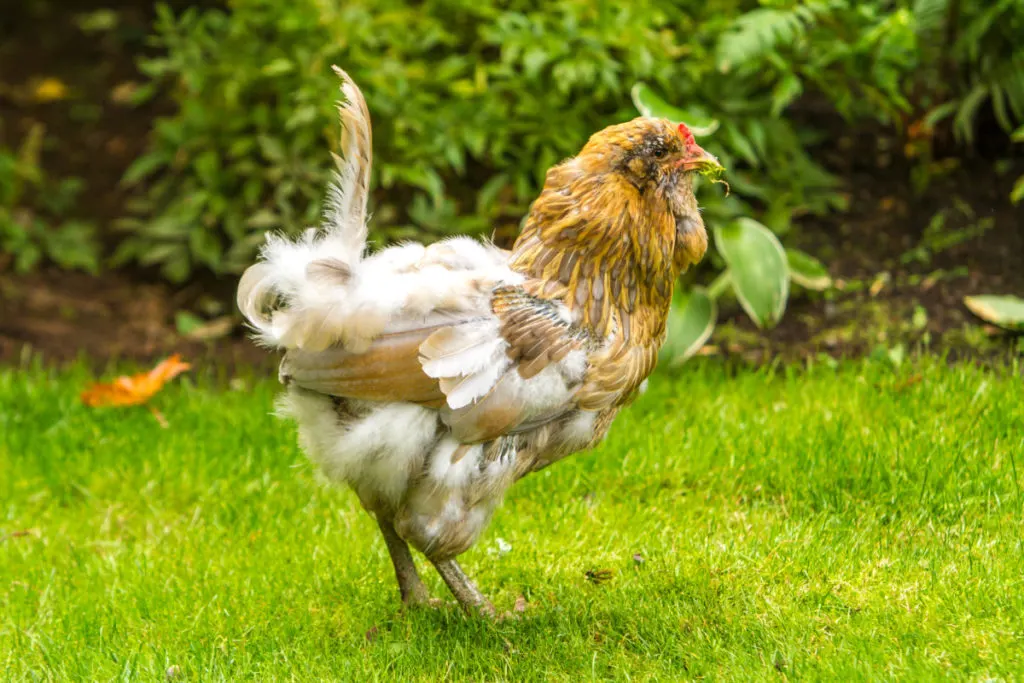
Molts can be so tough on your flock, not only are your chickens half-naked, shivering, and embarrassed, they also have to re-grow all the feathers that they lost, and quickly!
Feathers are mostly made of protein, so chickens need extra protein in their diet during their molt to help them re-grow healthy feathers.
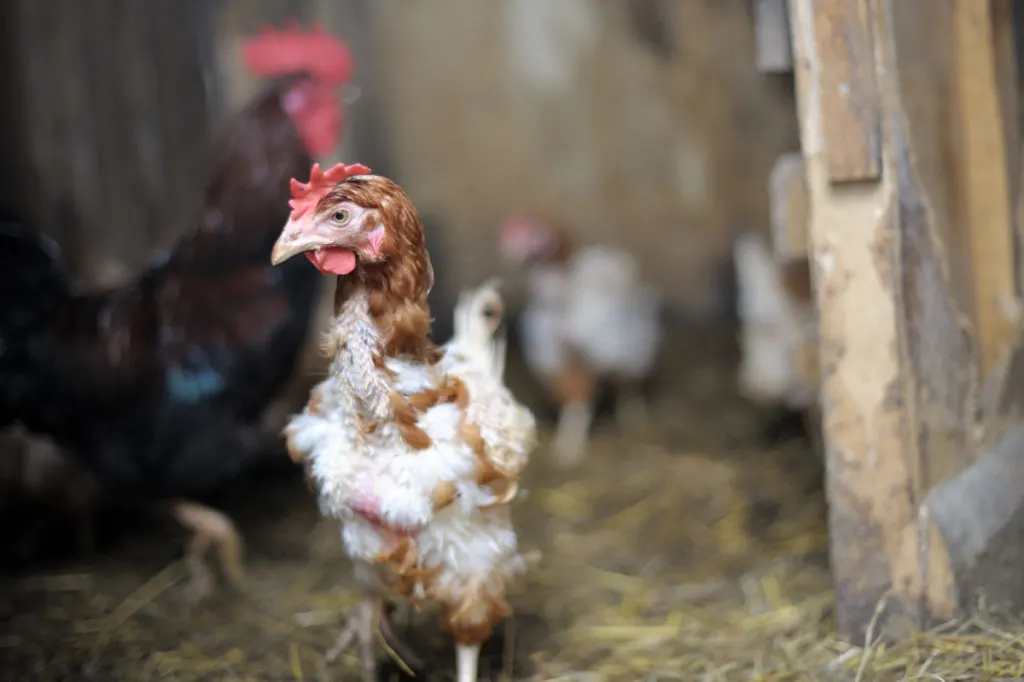
Feeding a high-protein chicken feed such as Feather Fixer is a great idea during a molt. If you don’t have access to that, you can stick with their normal feed and supplement with protein instead.
Our favorite go-to treats that are packed with protein are mealworms and grubs.
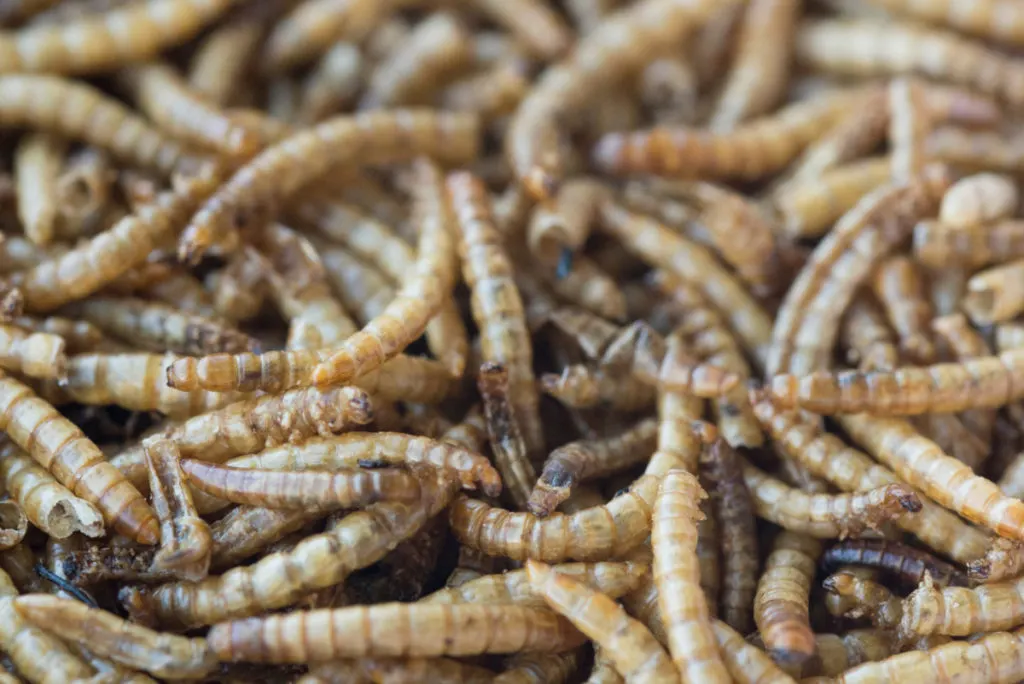
Mealworms have been a long-time favorite in our flock and they’re inexpensive, which is especially helpful with the rate at which our birds eat them! Grubs are more pricey, but they pack a higher protein punch.
2. Digestive Issues
Chickens can suffer from all sorts of digestive issues, from problems in their crop to problems with their vent.
Prevention is key with digestion, if you keep the chicken’s gut bacteria healthy, they’re a lot less likely to get sick.
We give our chickens some sugar-free yogurt once a week for the probiotics, and it’s a much-appreciated treat!
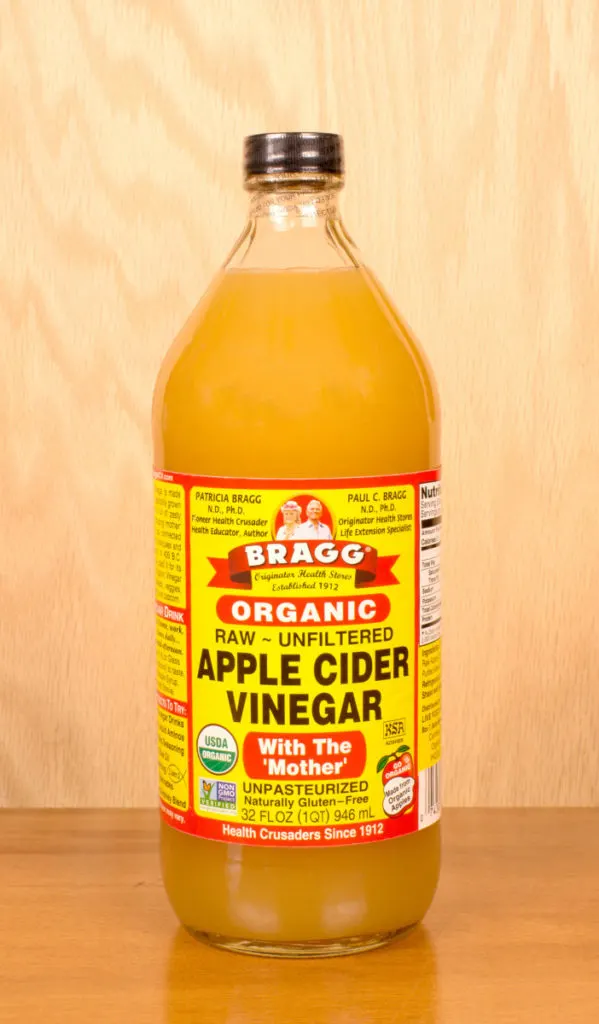
Our flock also gets a tablespoon of apple cider vinegar in their water once a week to help keep their gut biota in check.
If your flock is suffering from some sort of digestive issue, probiotics are really helpful. Simply follow the instructions on the packet to administer to your flock, and the big boost of probiotics will help them to recover from whatever ails them.
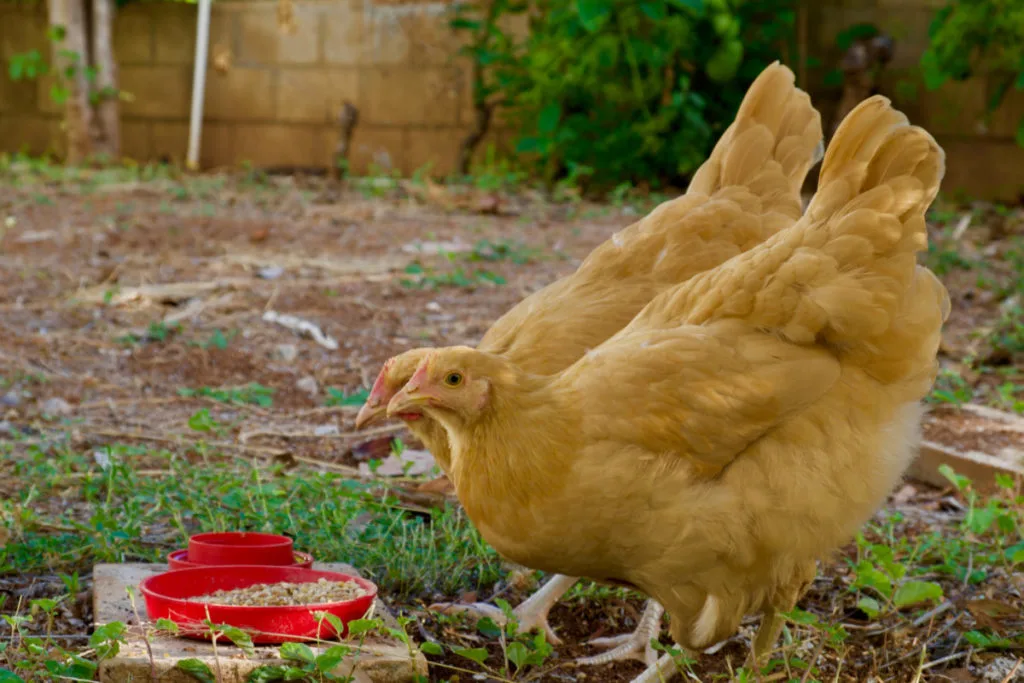
Grit is another necessary preventative measure to keep your chickens’ digestion on track. Chickens naturally eat grit, which they use in their gizzard, to help them digest food.
Chickens that free-range daily naturally find all the grit they need to stay healthy. If your flock doesn’t free-range, you’ll need to supply the grit to keep them healthy. Offer grit as a free choice supplement by leaving out a bowl of it for chickens to take as they please.
3. Weak eggshells
Weak or soft shells are a pretty common problem in chicken flocks. This is caused by insufficient calcium in the hens’ feed. This is an easy problem to diagnose and an easy one to fix.
Most chicken layer feeds come fortified with enough calcium to make for strong, hard eggshells, but if yours doesn’t, there are several supplements that you can try.
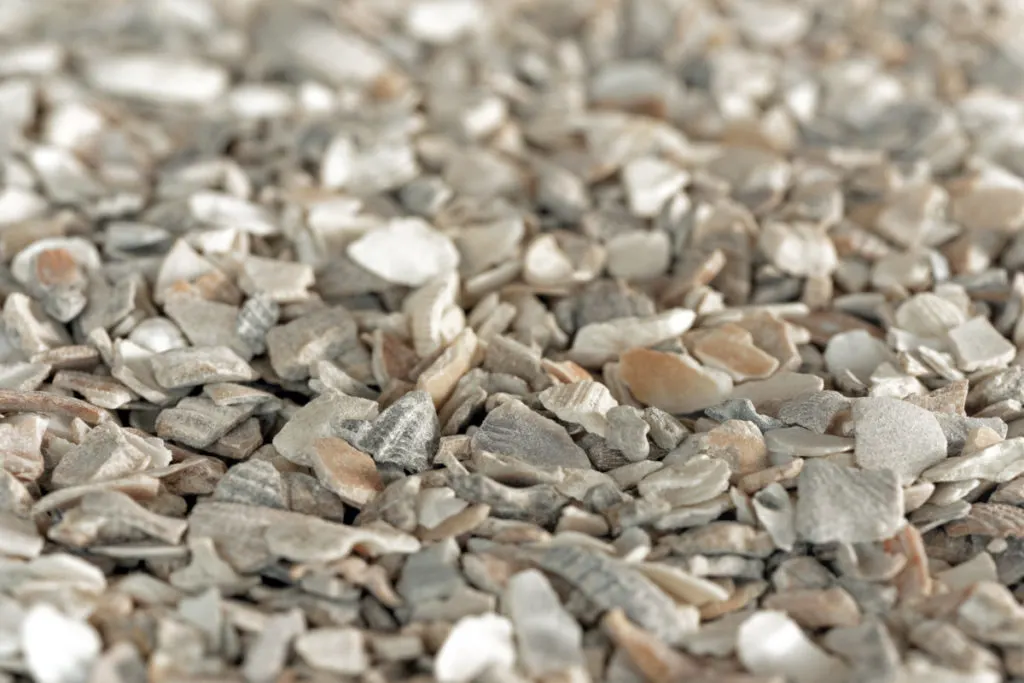
Ground oyster shell is the go-to solution for most chicken keepers who find soft or weak eggs. Oyster shell is offered to the flock free choice, not mixed into the feed. Set out a bowl of it in the feeding area, and the hens will pick at it as they wish.
There’s also a free solution that works just as well! Save the eggshells from your flock every time you make breakfast. When you have about a dozen, use a mortar and pestle to grind them into a powder.
Offer the powder-free choice to your flock just as you would the oyster shell. This is packed full of calcium and will help give those eggshells the boost they need.
Kelp is another great supplement to help chickens develop strong eggshells. Our chickens go crazy for this tasty treat! We like to sprinkle it on the chickens’ feed every few days to improve their egg health.
4. Stress & Behavioral problems
Stress doesn’t just affect you, it affects your flock as well. Chickens under stress suffer from all sorts of bodily issues, and can cause bullying issues for their fellow flock members as well.
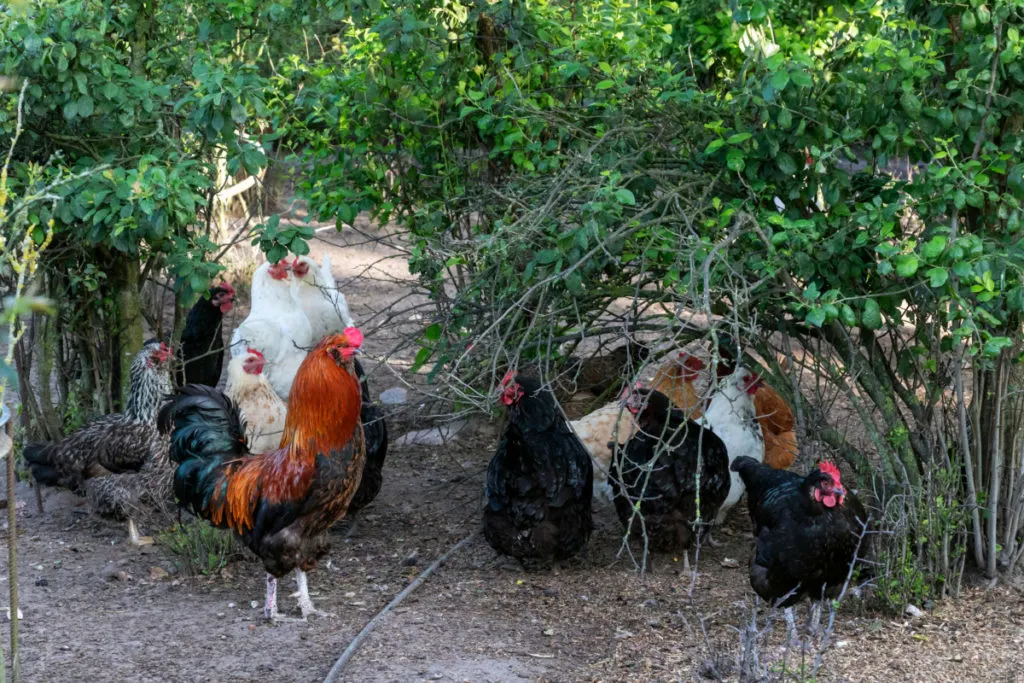
Behavioral issues like bullying, picking, and hiding eggs can all source from too much stress and not enough entertainment for your flock.
Chickens tend to get stressed for the following reasons:
- Introducing new members to the flock
- Losing flock members
- Adding light to the coop
- Re-arranging the coop- especially roosts and nesting boxes
- Not enough food or water
- Insufficient roosts or nesting boxes
- Extreme heat or cold
- Being cooped up too long
- Predators lurking in the area
- Pests like mites, lice, or rodents wreaking havoc on your flock
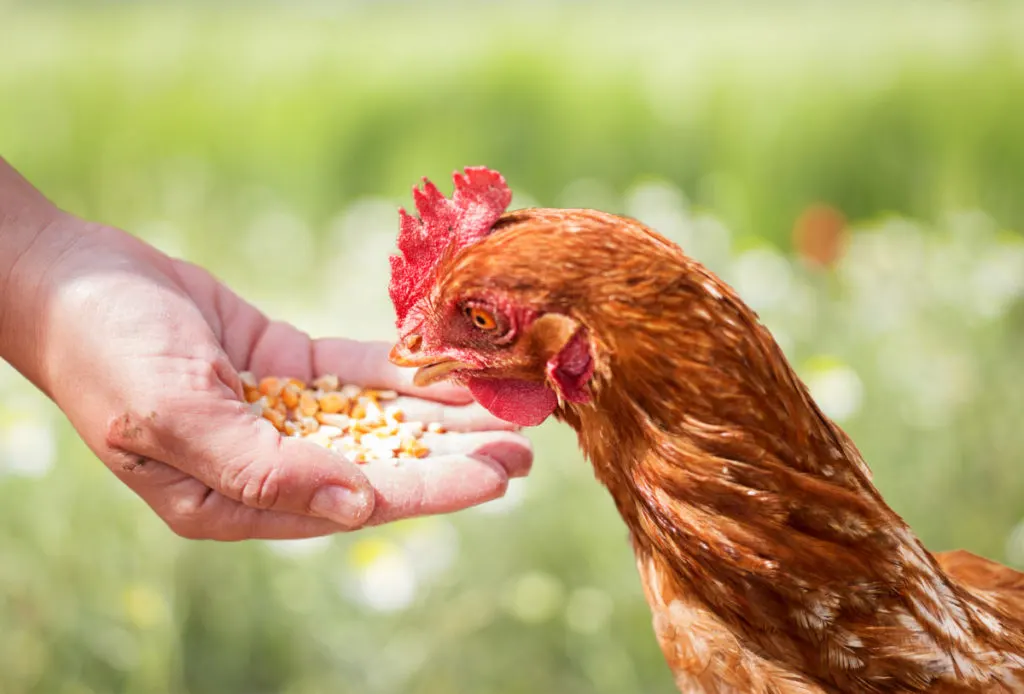
If you think any of these stressors could be affecting your flock, it’s important to deal with them right away. Stress not only leads to behavior issues in the flock but can lead to illness, wounds, and death as well.
Other than removing the stressor, another great way to reduce stress in your flock is to distract them with treats and supplements!
Chickens that are entertained are far less likely to pick on each other. Chickens are very food motivated creatures, and some of the following chicken toys have been proven to bust that boredom so the flock is happier and healthier.
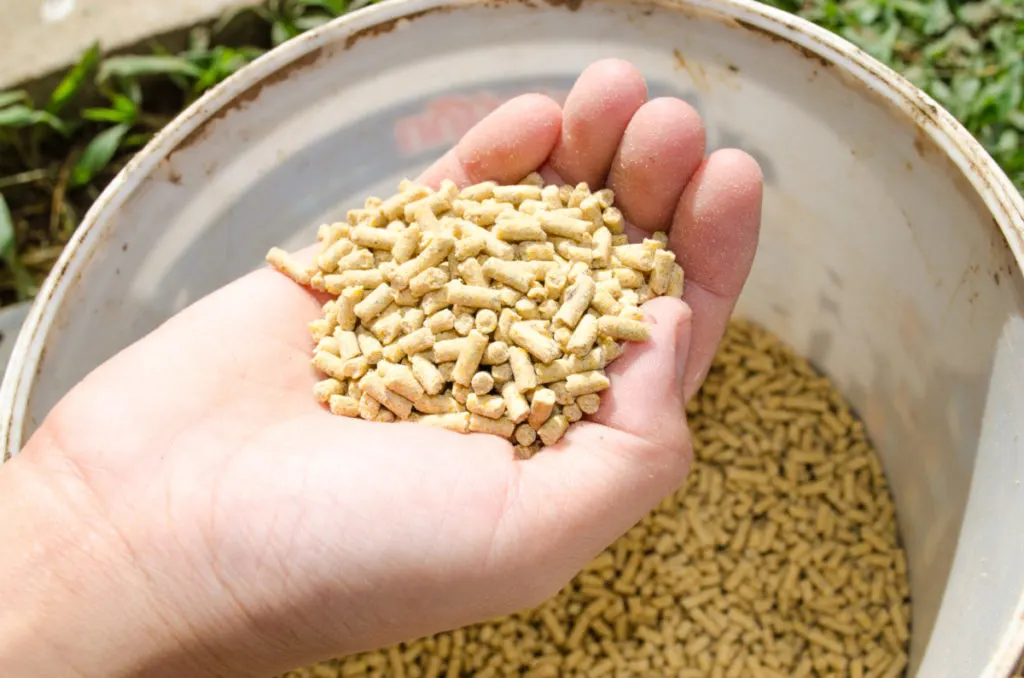
Ways to entertain your flock with food:
- Hang a cabbage or head of lettuce from the ceiling
- Fill a treat ball with vegetables and watch your chickens chase it around
- Fill a feeder toy with mealworms and watch your chickens play to get them out
- Toss chicken scratch into a fresh bale of straw for hours of find-the-treat entertainment
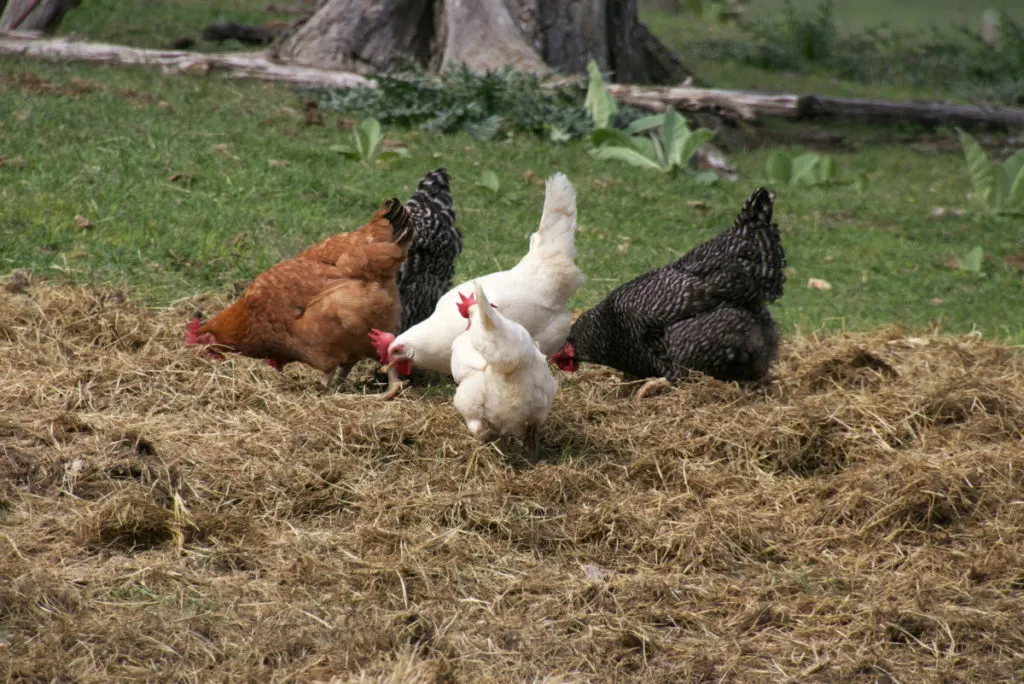
If you’re diligent about providing your flock with everything it needs to prevent illness before it strikes, you’ll be golden! Be sure to stock up on all the best treats, entertainment, and supplements your flock needs to stay happy and healthy.
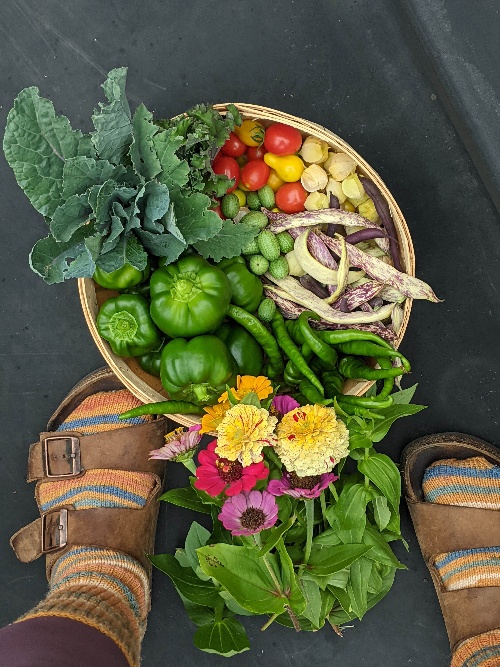
Get the famous Rural Sprout newsletter delivered to your inbox.
Including Sunday musings from our editor, Tracey, as well as “What’s Up Wednesday” our roundup of what’s in season and new article updates and alerts.

